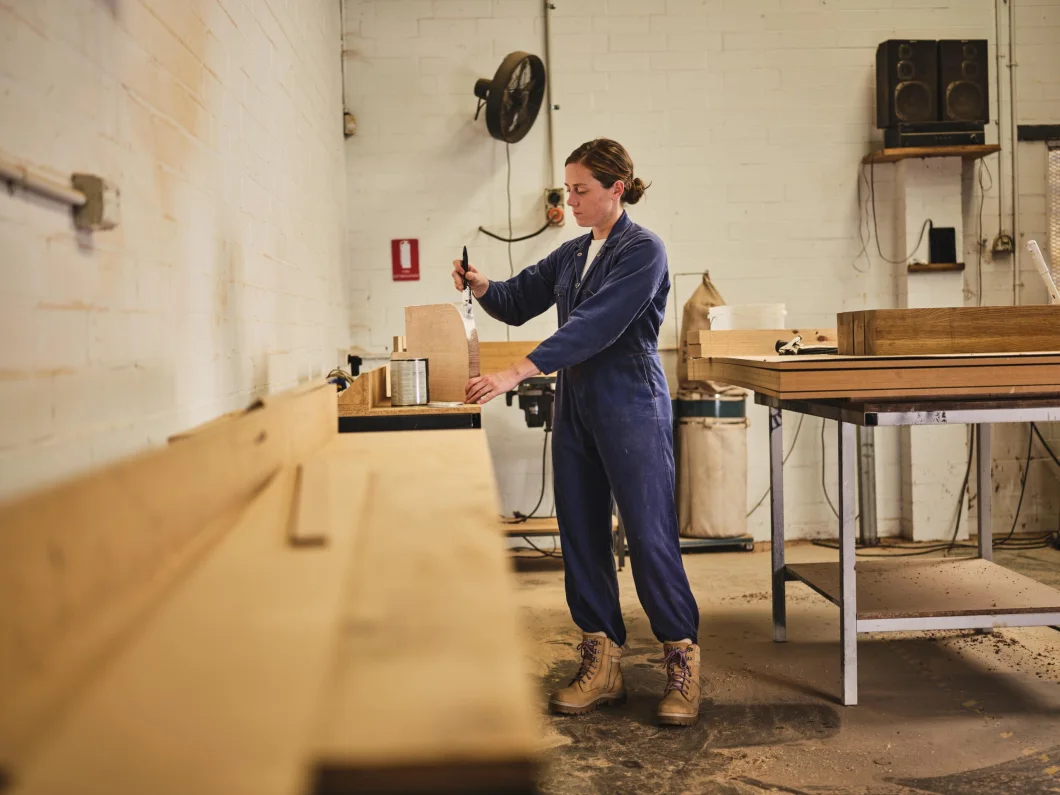 We all know you need to stay safe on the job, but how safe are you when doing your DIY projects? It's easy to forget how dangerous odd jobs around the house can be, and any enterprising DIY tradie needs to put their safety first just the same as a professional.
We all know you need to stay safe on the job, but how safe are you when doing your DIY projects? It's easy to forget how dangerous odd jobs around the house can be, and any enterprising DIY tradie needs to put their safety first just the same as a professional.
Do I really need safety boots for DIY?
It’s always better to be protected than risk a serious injury.
Safety boots aren’t just for professionals. They protect your feet from hazards like dropped tools, toe impacts, slippery surfaces and common chemicals. There are also specialty boots that provide extra safety around electricity, water or sharp objects.
That said, not every DIY project requires steel caps. Soft toe boots provide all-day comfort for painting, gardening, errands and chores around the house. Choose the best boot for your needs.
What safety features are essential?
The most important thing is that you’re comfortable all day and steady on your feet. If you aren't wearing your boots, they can't protect you, and uncomfortable PPE results in people forgoing their gear.
Beyond the basics, the safety features you need depend on the work you’re doing.
We recommend thinking ahead. You might be tinkering with hand tools now, but if you’re working up to heavier equipment, you’ll need tough toe protection in the not-too-distant future. Working in the rain, or in the garden? You might need something with water-resistant properties. Working with electricity? Call an electrician. But pick up a pair of anti-static boots too!
Should I choose steel toe, composite toe or soft toe boots?
The short answer? It depends.
- Steel cap boots offer protection against impact, compression, puncture and power tools. They’re ideal for tasks involving heavy materials or tools with pointy ends. Try these for any kind of installation or building projects - you don't want to slice off a toe or nail yourself to the floor.
- Composite toe caps are a lightweight alternative to steel, offering certified protection and all-weather insulation in a lighter package. They're a lot of people's go-to boot style, and there's a good reason for it.
- Non-safety (soft toe) boots are great for DIY projects with minimal safety risks. They’re tough, durable and comfortable, even without the protection of steel or composite toe caps. They won't protect you the same way as a safety toe would, but they will keep the thorns and brambles out, and might even save you from stepping on that thumbtack you lost last year.
What is the advantage of non-safety boots over regular sneakers?
Soft toe boots offer tougher protection than your run-of-the-mill sneakers. The premium leather used in these boots are durable and tough for the hardest of work environments. These boots also offer increased ankle protection keeping the ankle snug for all terrains.
How can I tell my boots are good quality?
True skill is easy to see if you know where to look. When it comes to safety boots, there are a few signs that you’re investing in a quality pair:
- Standard safety features that exceed minimum requirements, such as non-slip soles
- Fastenings (zips, laces and pull-on tags) made from premium material
- Manufacturing methods that don’t cut corners
- Consistent sizing, including half-sizes
- Manufacturing warranty and a 30-day Comfort Guarantee
- A brand you recognise
The best way to be sure is to try on boots before buying them, which you can always do in-store here at Taylor Safety.
For further information, view Steel Blue's blog post about DIY Safety here





